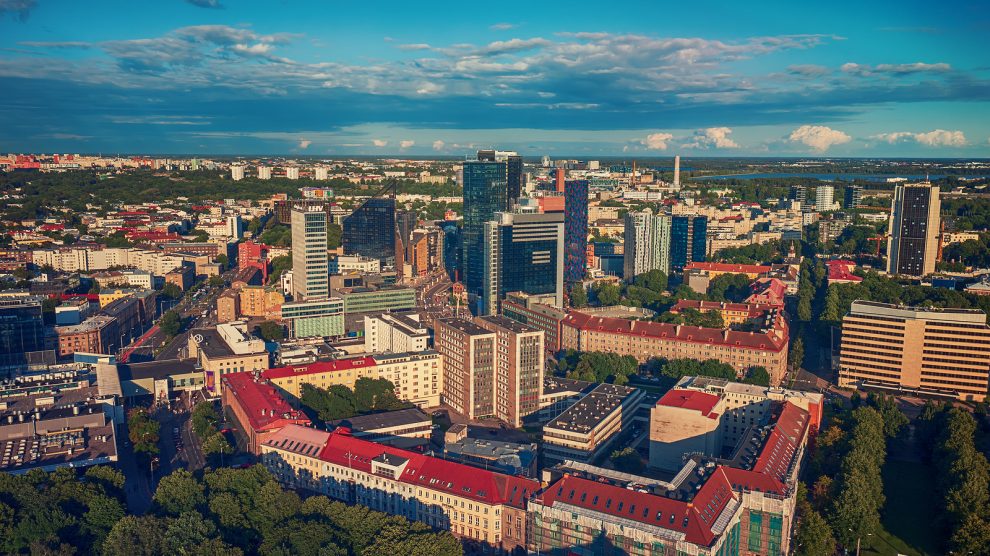Albeit pushed hard by a Latvia very much on the up, Estonia continues to boast the most competitive IT sector in Central and Eastern Europe and the Baltics.
The crown is secure for another year. Estonia, so long the gold standard in Central and Eastern Europe and the Baltics in all sorts of metrics and rankings, remains the region’s most competitive IT market, once again taking first place in Emerging Europe’s IT Competitiveness Index.
The latest edition of the Index, included in Emerging Europe’s Future of IT 2024 report, published this week, which looks at the technology sector in all 23 countries of the region using the same methodology to understand how each country contributes to the size of the regional market, is the third in succession in which Estonia has come out on top.
Estonia scored 63.83 out of a possible 100 points. Latvia (up from fourth) takes second place with 60.46, overtaking both Lithuania (59.26) in third and Poland (54.62), which falls to fourth. Romania (53.28) rounds out the top five.
At the other end of the Index are Albania (36.37), Belarus (32.9), and Azerbaijan (28.38).
Estonia’s commitment to innovation
“Estonia has emerged over the past two decades as a pioneering force in digital innovation, particularly in the ICT sector,” says Craig Turp-Balazs, editor of Emerging Europe.
“The nation has witnessed steady growth in ICT employment, the average gross salary, and a surge in ICT exports. Estonia is also renowned for its forward-thinking digital initiatives in e-governance and healthcare. Its top ranking in the IT Competitiveness Index and notable position in the Global Startup Ecosystem Index attest to its dynamic entrepreneurial landscape and commitment to innovation.”
According to the Emerging Europe report, the percentage of the Estonian workforce involved in ICT increased from 4.5 per cent in 2018 to 5.4 per cent in 2022, and is expected to reach 5.6 per cent in 2024.
“Estonia excels as a model of success in emerging Europe, showcasing its strong commitment to economic freedom, social progress, education, online services, and cybersecurity,” adds Turp-Balazs.
However, hot on Estonia’s heels is its southern neighbour, Latvia. The country’s ICT sector, so long in Estonia’s shadow, is experiencing a significant upswing, fueled by growth in various aspects such as salaries, employment, and education.
“This momentum reflects the nation’s genuine dedication to digitalisation, evident in its thriving digital public services,” says Turp-Balazs.
“Furthermore, the start-up ecosystem in Latvia is expanding, with the country’s performance in the IT Competitiveness Index underscoring its competitive advantage.”
The end of the ‘low-cost’ era
Overall, Central and Eastern Europe and the Baltics are in an increasingly strong position on the global tech landscape, and IT is playing a key role in shedding the region’s reputation as a ‘low-cost’ destination, instead becoming a hub of creativity and high-value production.
“Cost is no longer the king in business decisions regarding our region,” says Andrew Wrobel, Emerging Europe’s founding partner.
“Instead, partners and investors are drawn to the rich pool of talent, the exceptional quality of products and services, and the promise of long-term value.
“This shift is a testament to the hard work and vision of the region’s people. Within this landscape, the IT sector stands tall and proud.”
The full Emerging Europe Future of IT Report 2024 can be downloaded for free, here.
Unlike many news and information platforms, Emerging Europe is free to read, and always will be. There is no paywall here. We are independent, not affiliated with nor representing any political party or business organisation. We want the very best for emerging Europe, nothing more, nothing less. Your support will help us continue to spread the word about this amazing region.
You can contribute here. Thank you.


